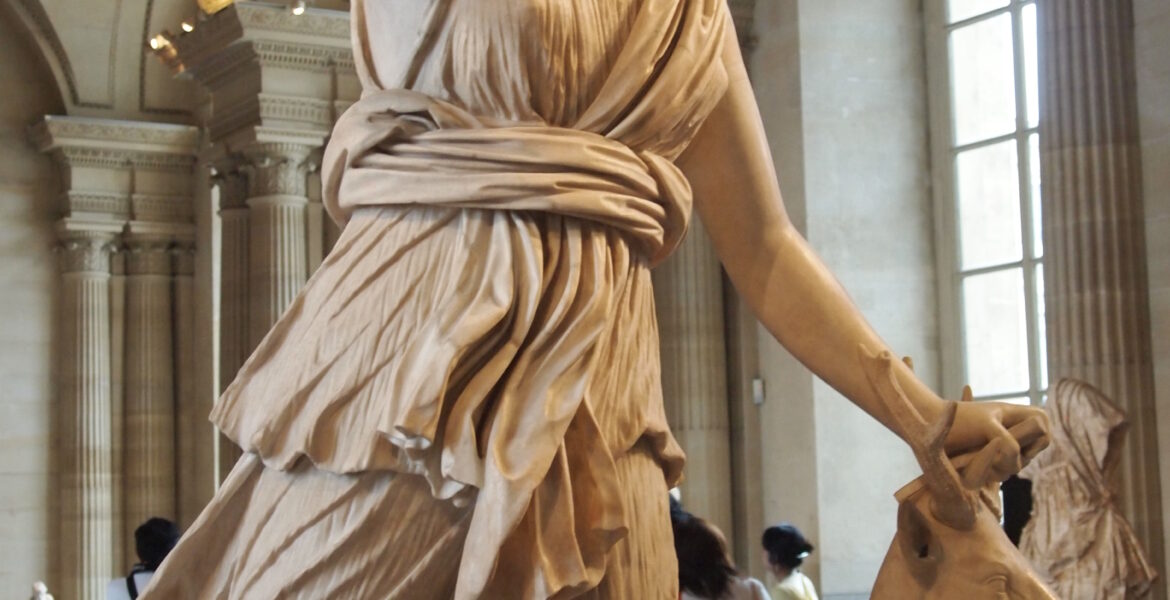Today on International Women's Day, GCT has compiled a list of the Top 10 Ancient Greek Goddesses.
10. Hestia
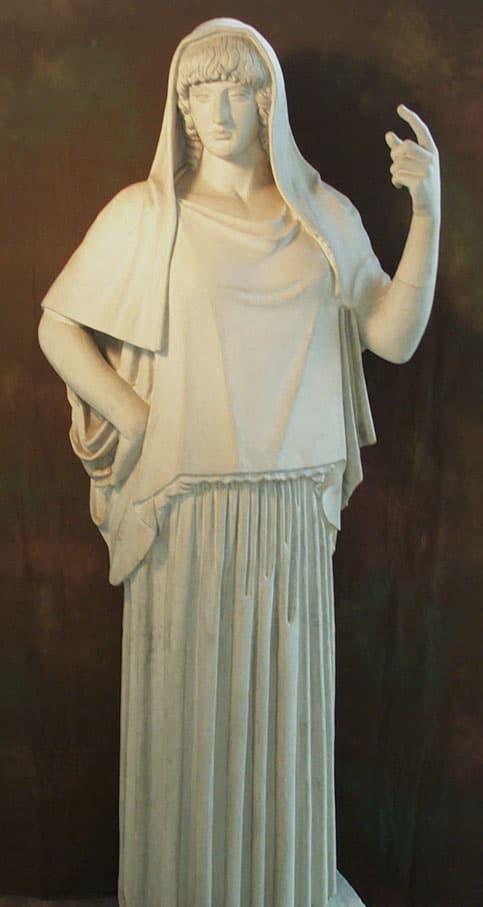
Hestia, the Goddess of home and hearth, was a pivotal figure in ancient Greece. Many historians suggest that she was the firstborn of Cronus and Rhea and hence, the first child to be swallowed by Cronus.
When the Olympians rose to power, Poseidon and Apollo were after Hestia’s hand in marriage. Still, she declined them and swore to remain eternally a virgin and take her place upon the royal hearth.
Hestia was known as the Goddess of domestic life. Hence, all happiness and blessings within the home were attributed to Hestia.
Some believe she was responsible for teaching a man how to build houses. As a result, a small part of Hestia dwells in every household. It’s also why she appears as the protector or teacher of man’s work.
9. Hebe
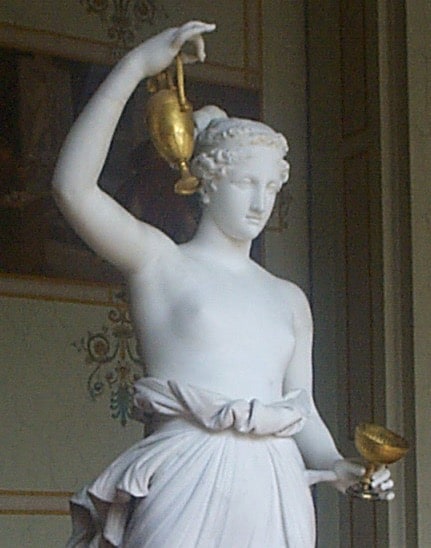
Hebe, the youngest daughter of Zeus and Hera, is the Goddess of youth. She is often alongside her father, who guises himself as an eagle.
The eagle is drinking from the cup that she possesses with her. This depiction implies the rejuvenation of the eagle with the elixir of youth.
Hebe was a prevalent subject not only during the ancient Greek period but also during the post-classical art period.
She was painted many times for centuries, with the same iconic eagle and a hurling cup. The eagle is supposed to renew itself in youth with the elixir from the bowl.
8. Nemesis
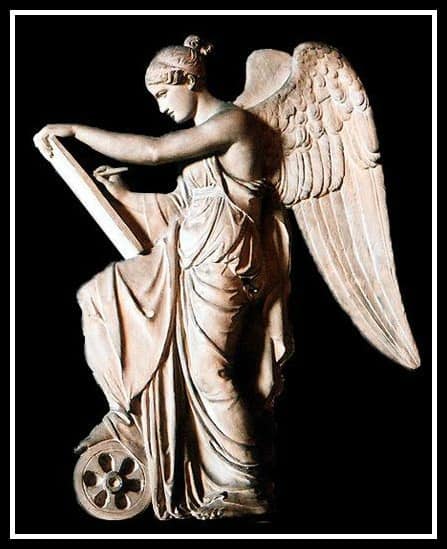
Nemesis is the Greek Goddess of Revenge and Divine Retribution. She plays an important role in the history of the Ancient World. Nemesis is the personification of divine retribution against those who commit Hubris (arrogance before the Gods). Her name means "She Who Distributes What is Due." Nemesis directs human affairs in such a way as to maintain balance. She is also known as Rhamnusia; another name for her is Adrasteia, meaning “the Inescapable.”She represents the ideas of righteous anger due to enactment or divine vengeance.
7. Leto
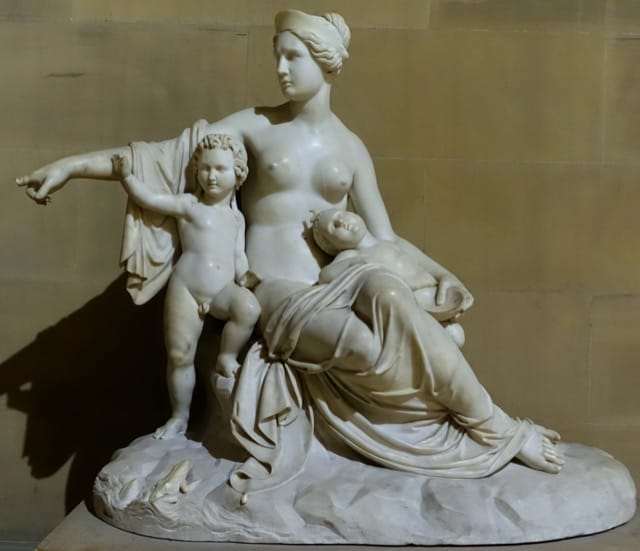
Leto was the Goddess of motherhood. She was the daughter of the Titan Coeus, God of intellect, and Phoebe, Goddess of oracular intelligence.
Leto is mostly known to be the mother of Apollo and Artemis and their protector. When observed well, Leto exudes feminine demure. Her sister was Asteria, the Goddess of nocturnal oracles.
She lived on the island of Kos in Greece. One day, Leto’s beauty caught the eyes of Zeus, and he impregnated her, giving birth to the twins Apollo and Artemis. Hera, the wife of Zeus, was very angry at her husband.
Therefore, as the queen of the gods, she forbids Leto to give birth out of jealousy. Leto was frantic as she relentlessly pursued around the land to give birth to her twins. Then she took refuge on the island of Delos.
The incorrigible Hera sent for Tityos to abduct her yet again, only to be slain by Leto’s son, Apollo.
6. Rhea
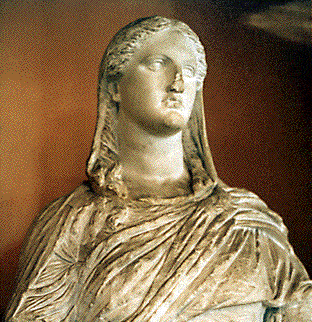
Rhea means ease and flow, symbolizing the eternal flow of generations and time, further highlighted by her marriage to Cronus, the Titan god of time.
As a deity heavily associated with motherhood and fertility, some take the flow meaning from her name to symbolize the flow of birth waters, milk and menstrual blood.
Being one of the original Titans meant that she was a child of Uranus and Gaia, and once she married Cronus, they became the God and Goddess of the heavens.
The ruler of Olympus, she’s described as giving birth to six splendid children who we know as the original Olympians.
Rhea’s cult may not have been the biggest, but she was worshipped in Arcadia and Crete, the birthplace of Zeus. Rhea, often depicted as wearing a turret crown on a throne, is accompanied by lions on either side.
This association of lions could also be because the Greeks identified her with the Anatolian Goddess Cybele. Like many other Titans, Rhea’s involvement in the Greek mythos is relatively limited, but she does appear in many stories.
5. Aphrodite
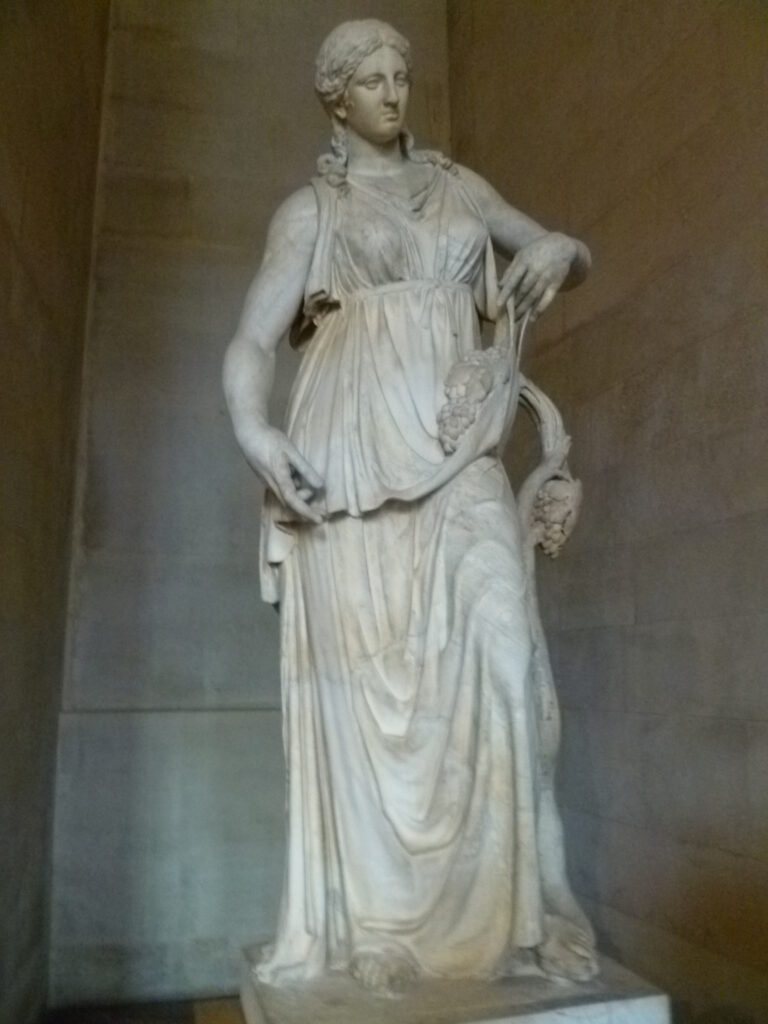
Aphrodite, the Olympian goddess of love, beauty, and sexual pleasure. The enchanting one, the one who is infinitely desirable but infinitely out of reach.
To her devotees, she is known as the ‘smile loving’, ‘the merciful’ and the ‘one who postpones old age.’ While those scorning her worship, she is known as ‘the unholy one’, ‘the dark one’, ‘the doom of men’, ‘the killer of men.’
The Romans identified the Goddess with the name Venus. According to Hesiod, Aphrodite was born from the castrated genitals of Uranus. It fell into the sea near the coast of Cythera.
She had risen from the foam of waters on a shell, fully grown. She was more beautiful than anything or anyone in the universe.
However, according to Homer, Aphrodite was the daughter of Zeus, and the Titaness Diona, thus, the stepsister of the other Olympians, Athena, Artemis, Ares, Hephaestus, Apollo, Hermes and Dionysus.
4. Demeter
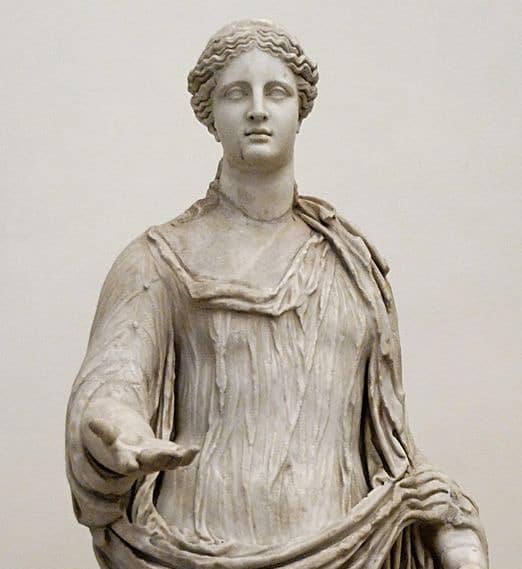
Demeter was the daughter of two prominent Titans: Kronos and Rhea. As the goddess of harvest and grain, she was highly regarded in ancient Greek mythology. Even though she was one of the first Olympian gods, she took a path very different from other contemporary Olympians. She refused to be confined to the realms of Mount Olympus and went to the temples dedicated to her by her followers. She lived close to those who worshipped her, and in many ways, depending on her.
She has always had a substantial following among mortals since she had the power to bless them with rich harvests, and she also created favourable seasons for crop planting. But when Hades abducted her beloved daughter Persephone and took her to the underworld, she fell into deep gloom and sorrow, causing the plants to wither and die. From that point onwards, whenever Persephone would leave for the underworld, the season of winter would fall in the world of mortals; Persephone’s return to Demeter would mark the beginning of spring.
3. Artemis
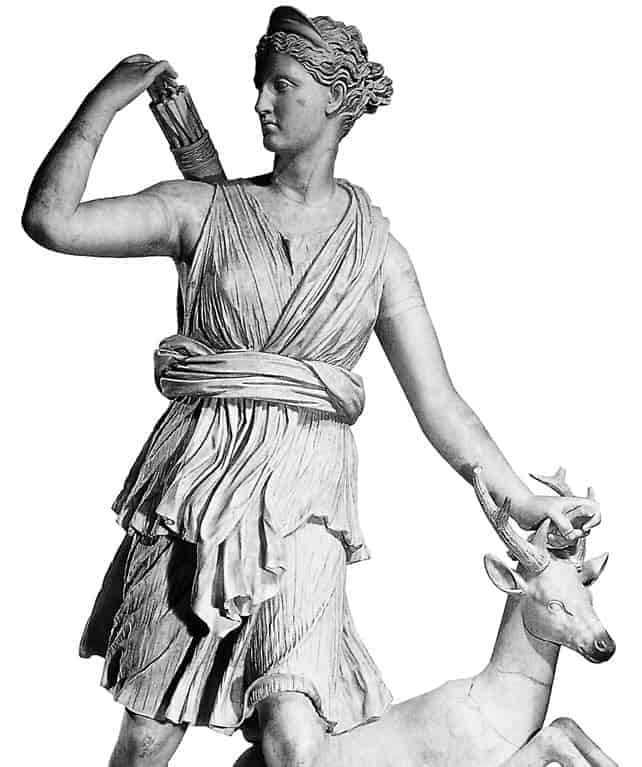
Artemis was among the most revered and honoured ancient Greek deities. Her rule spanned many things, including hunting, the moon, virginity, childbirth, and the wilderness of wild animals. She was considered the protector of young girls up to the age of marriage.
She was just one of Zeus’s many children and went by various names. Most people are better familiar with her Roman name Diana. Some believe that Artemis may have even predated the era of the ancient Greeks.
Artemis’s mother was Leto, a Titan goddess, and very early on, she became a favourite of lord Zeus. Unfortunately for Leto, she fell pregnant with Artemis and her twin brother, Apollo, while Zeus was still married to Hera. Hera was offered a bow by Zeus, which took her to hunting pursuits
2. Hera
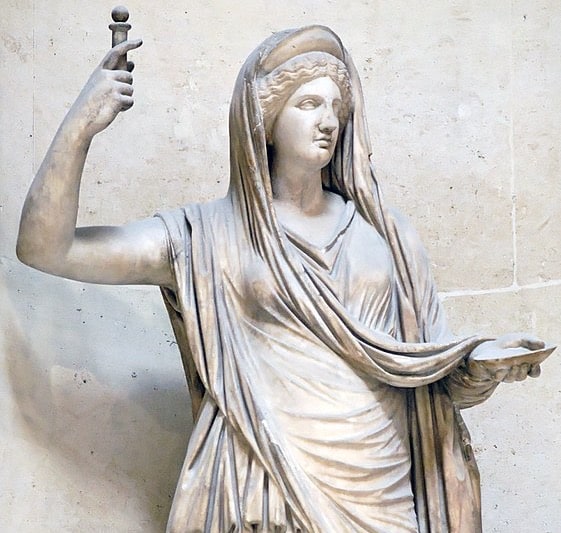
Hera is the renowned queen of Olympus, sitting behind her husband, Zeus, the supreme God of the universe. She reigns over the skies from the top of her golden throne.
The Goddess is the daughter of the Titan, Cronus, the ancient supreme God. As the sister and the wife of Zeus, she is the queen of the Heavens.
Described as jealous and vindictive with a quick temper and fearsome passion, she is the first lawful wife and the protector of wives.
She is also the Goddess of marriage and childbirth. She, too, was swallowed by her father in fear of being overthrown.
Zeus liberated Hera from her father’s stomach. According to some accounts, the Goddess lived on the island of Euboea, where she stayed under the watchful eye of Thetis and had the seasons as her chaperons.
She was the most beautiful among all goddesses. It was for this reason alone that Zeus fell in love with her. Hera resisted Zeus’s intentions and resorted to any trick to seduce the Goddess.
However, the Goddess was fooled by one of Zeus’s many traps. And thus, Zeus gets married to him even though Hera is his sister.
1. Athena
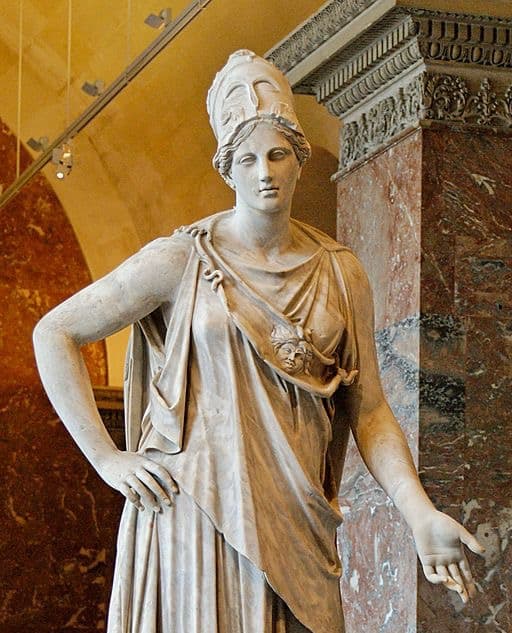
1. Athena
She was a unique deity with unfathomable popularity among gods and mortals. Her birth was far from ordinary, given that her mother did not, technically speaking, give birth to her. Her mother was Metis, who Zeus swallowed while pregnant because of a prophecy that the child Metis would bear would become the lord of the heavens. But when it was time for Athena to be born, Zeus began to complain of a massive headache. Athena then sprang from his head, fully grown and dressed in armour.
Athena was known for her ferocity in battle, but unlike Ares, she never displayed hotheadedness and always believed in fighting for justice and righteousness. She only took part in wars that were fought in self-defence. She was the divine personification of reasoning, wisdom, and knowledge. No wonder she was Zeus’ favourite child and was even allowed to use his mighty thunderbolt whenever needed. The sheer scale of influence she had over the mortal world is evident from the fact that Athens' city took its name after her.

